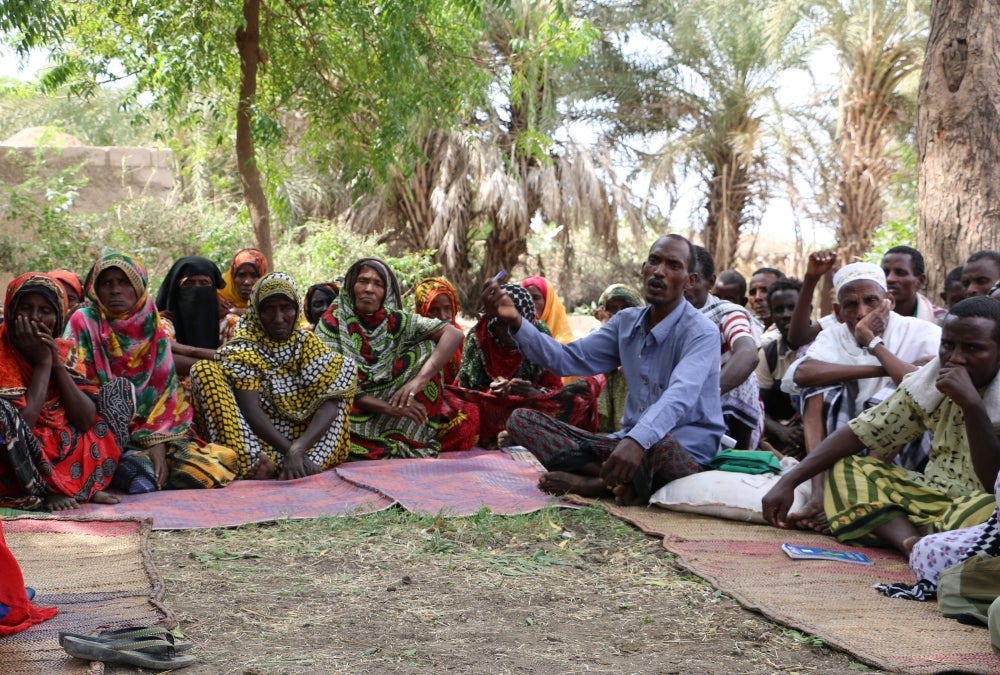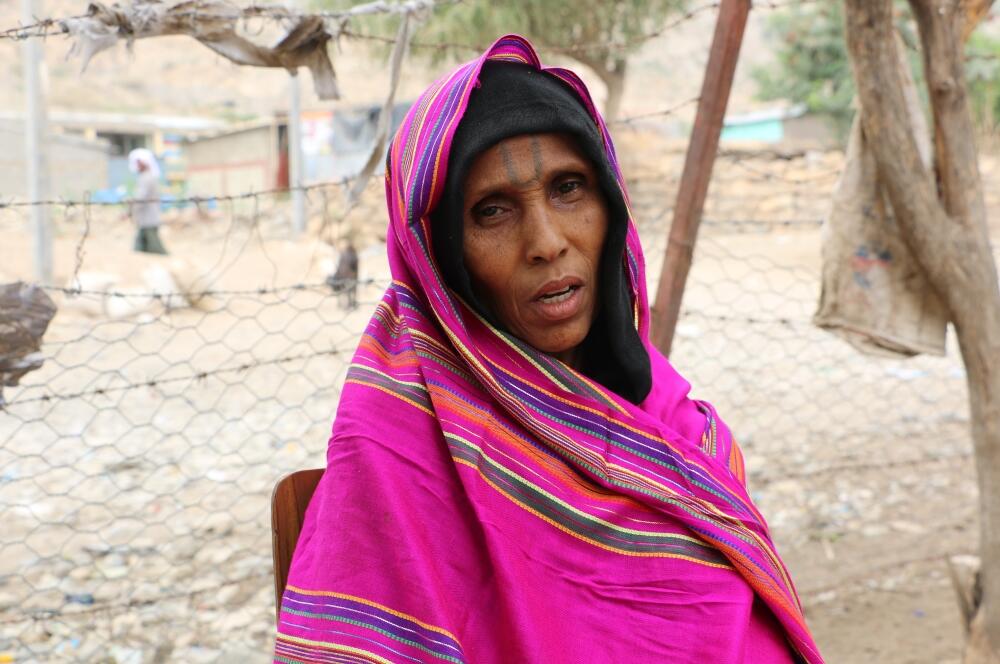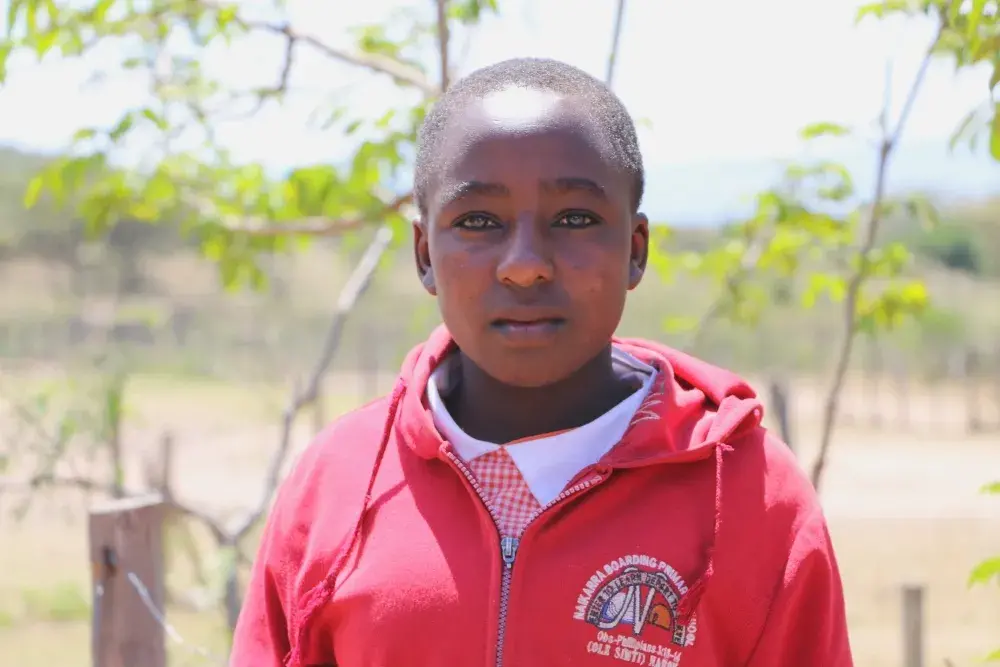ABALA DISTRICT, Afar Region, Ethiopia—For more than 30 years, Hawa Abdella carried out female genital mutilation (FGM) on countless number of girls. She does not deny that the girls experienced pain and suffering during the procedure – and especially, when they gave birth. As she also functions as a traditional birth attendant, she was involved in both procedures and saw the effects.
They were bleeding a lot during childbirth and we [did] not take them to a health facility.
“They were bleeding a lot during childbirth and we [did] not take them to a health facility,” Ms. Abdella says. Yet this was considered a cultural obligation that any Afar girl should go through and so she didn’t give it much thought, she admits.
With hindsight, Ms. Abdella says she rues the misery she inflicted on many girls by being an agent of harmful practices. She owes her change of mind to her engagement in a programme that started in her area a few years ago, with UNFPA support.
Female genital mutilation not sanctioned by religions
She participated in an integrated programme on preventing child marriage and FGM, where she learned that the practice of FGM, which she had conducted for generations, is not sanctioned by her religion. Hearing this at first-hand from religious leaders during the community conversation sessions she participated in was a revelation for her.
As a result, she renounced the practice.
One of the worst form of FGM – infibulation – is widely practiced in the Afar Region. The region has the second highest prevalence of FGM, after the Somali Region. A girl in the Afar Region is prone to circumcision as early as her seventh day, with some women going through it after marriage and giving birth.
Infibulation involves the removal of the clitoris, labia minora and labia majora, followed by the sealing of the wound to allow only a small hole through which the woman’s urine and menstrual blood can pass.
Thanks to the courage and conviction of women like Ms. Abdella, the prevalence of FGM is on the decline in Afar Region, and the country as a whole. The prevalence of FGM in Ethiopia has dropped from 80 per cent of women and girls in 2000 to 65 per cent in 2016, according to the 2016 Ethiopian Demographic and Health Survey.
Making amends for the pain and suffering she caused
Now more than three years since Ms. Abdella stopped performing FGM, she wants to make amends for the suffering she meted out to many women and girls. She has become a facilitator of community conversation sessions in her community. This is a major component of the integrated programme, in which an average of 70 members of different sections of the community sit together every two weeks to discuss practices such as child marriage and FGM, which put women and girls in harm’s way.
This programme, which is being implemented in 13 localities in the Abala District of the Afar Region, uses an integrated approach that kills two birds with one stone. With funding from the UN Association in Sweden, it is being overseen by the region’s Women and Children Affairs Bureau.
Communities declare abandonment of FGM, with UNFPA support

declaration ceremony. Repeated discussions and training
on the harms of the practices are successfully leading to
abandonment. ©UNFPA Ethiopia/Abraham Gelaw
Yet, much of the credit for its successes are attributed to the efforts of influential members of the community – people like Ms. Abdella.
UNFPA piloted the integrated programme on prevention of child marriage and FGM in the Afambo District in 2012. After four years of implementation, notable successes were registered in all intervention localities in the district, with public declarations being made on abandonment of both practices.
What has convinced many opponents of social change – including FGM and child marriage – to gradually change their positions has been repeated discussions and training on the harmfulness of the practices. In this process, influential community leaders have played a pivotal role in clearing misconceptions around the practices.
Ongoing requests for FGM in communities
But social change does not come without challenges.
On a number of occasions, Ms. Abdella has been approached by community members who have asked her to carry out FGM on their daughters and to conduct deliveries at home. Yet the training she received from the programme has helped her change her attitude. She now knows that the practices do not have any intrinsic value and that they put women and girls at risk and in heightened misery, she says.
If anyone comes with a request to circumcize a girl, I will inform the law enforcement bodies for legal measures to be taken.
“I have made my position very clear to members of my community that if anyone comes with a request to circumcize a girl, I will inform the law enforcement bodies for legal measures to be taken,” Ms. Abdella says with determination.
Since the training, she has also stopped conducting deliveries at home. She now supports efforts to promote institutional deliveries, which remain very low in the region.
Ensuring women deliver safely

infibulation – is widely practiced in the Afar Region. © UNFPA
Ethiopia/Abraham Gelaw
“I am working closely with health workers, such as Health Extension Workers, to make sure that a pregnant woman delivers at the Health Centre in our district,” she says.
When a pregnant woman is ready to deliver, she calls an ambulance service to take her to the Health Centre, thus setting a good example for traditional birth attendants in her community.
Ms. Abdella considers herself fortunate to be part of efforts to promote abandonment of child marriage and FGM in her community.
“The programme should continue as it is bringing lots of changes in my life and my community, because it is sparing our daughters from harmful practices and enabling them to go to school,” she says.
- Abraham Gelaw



